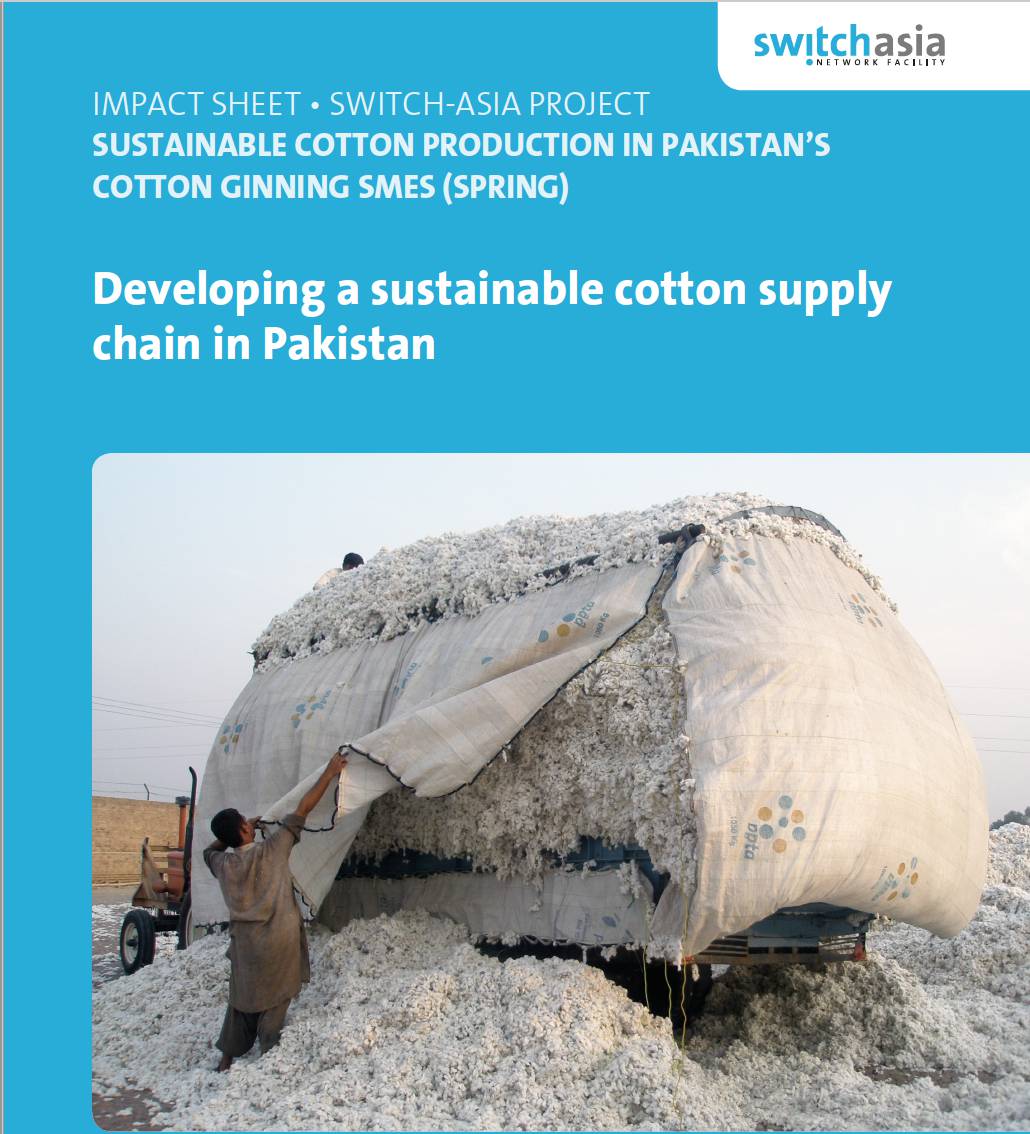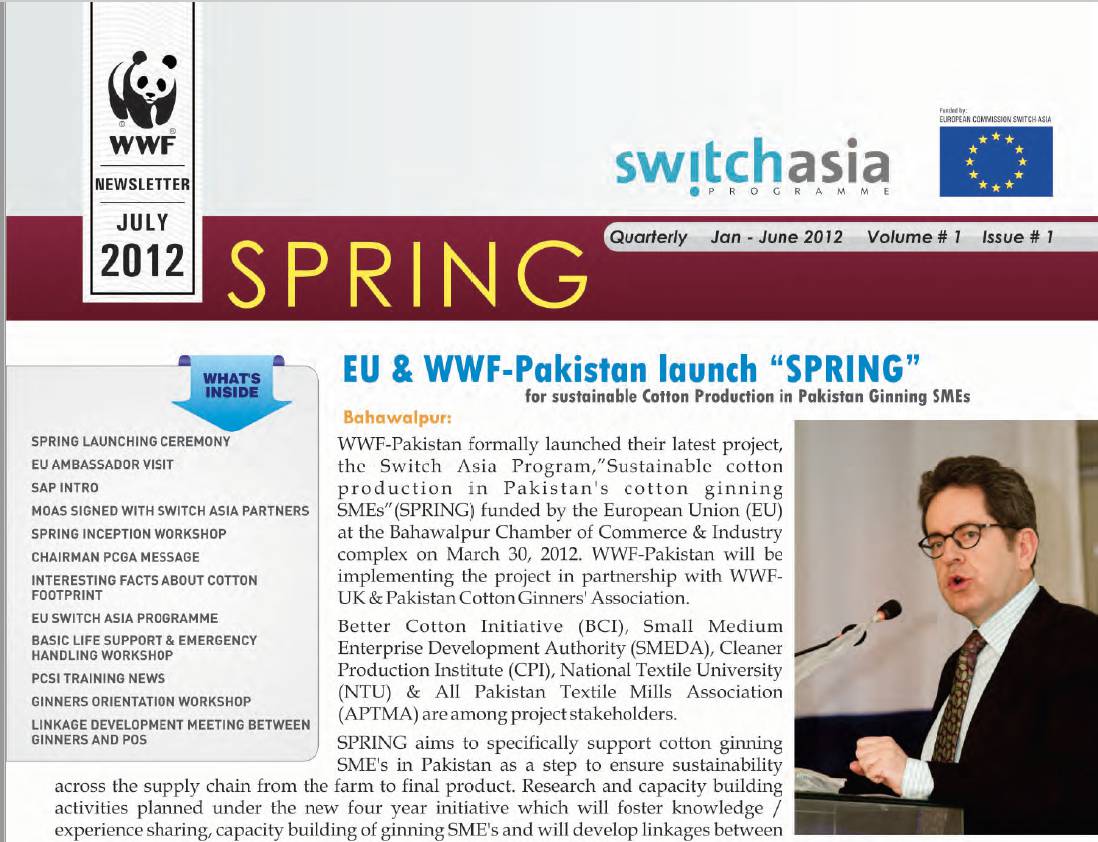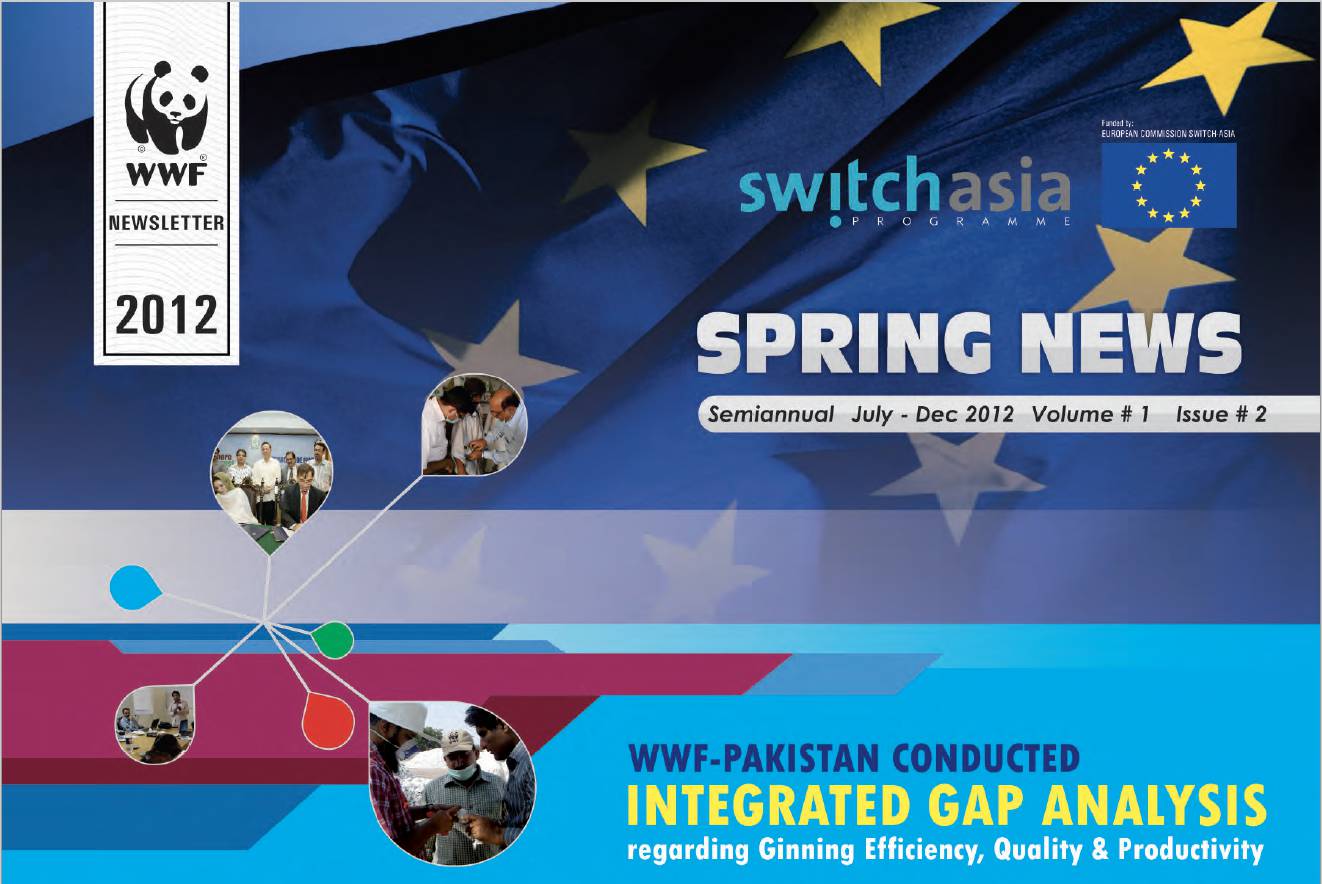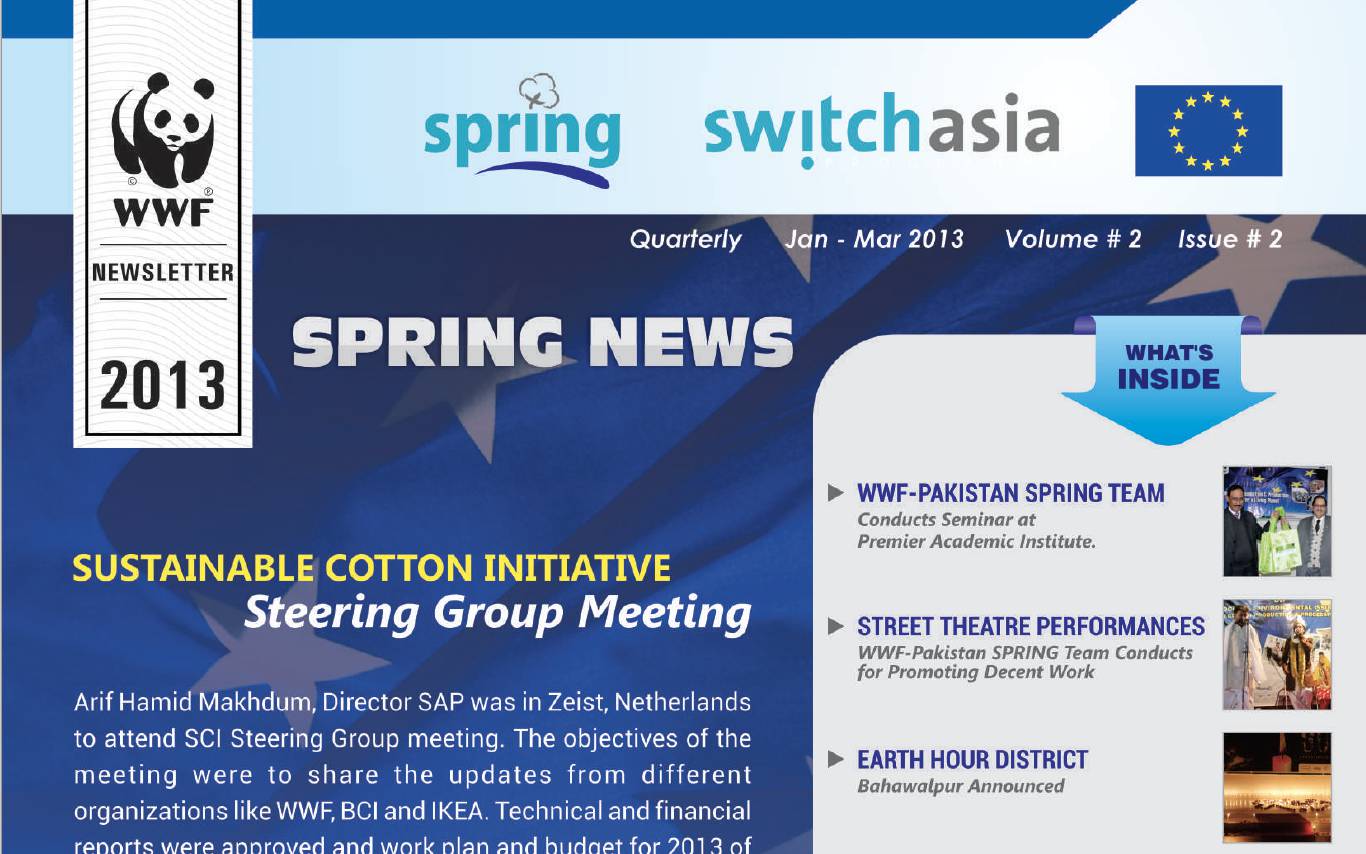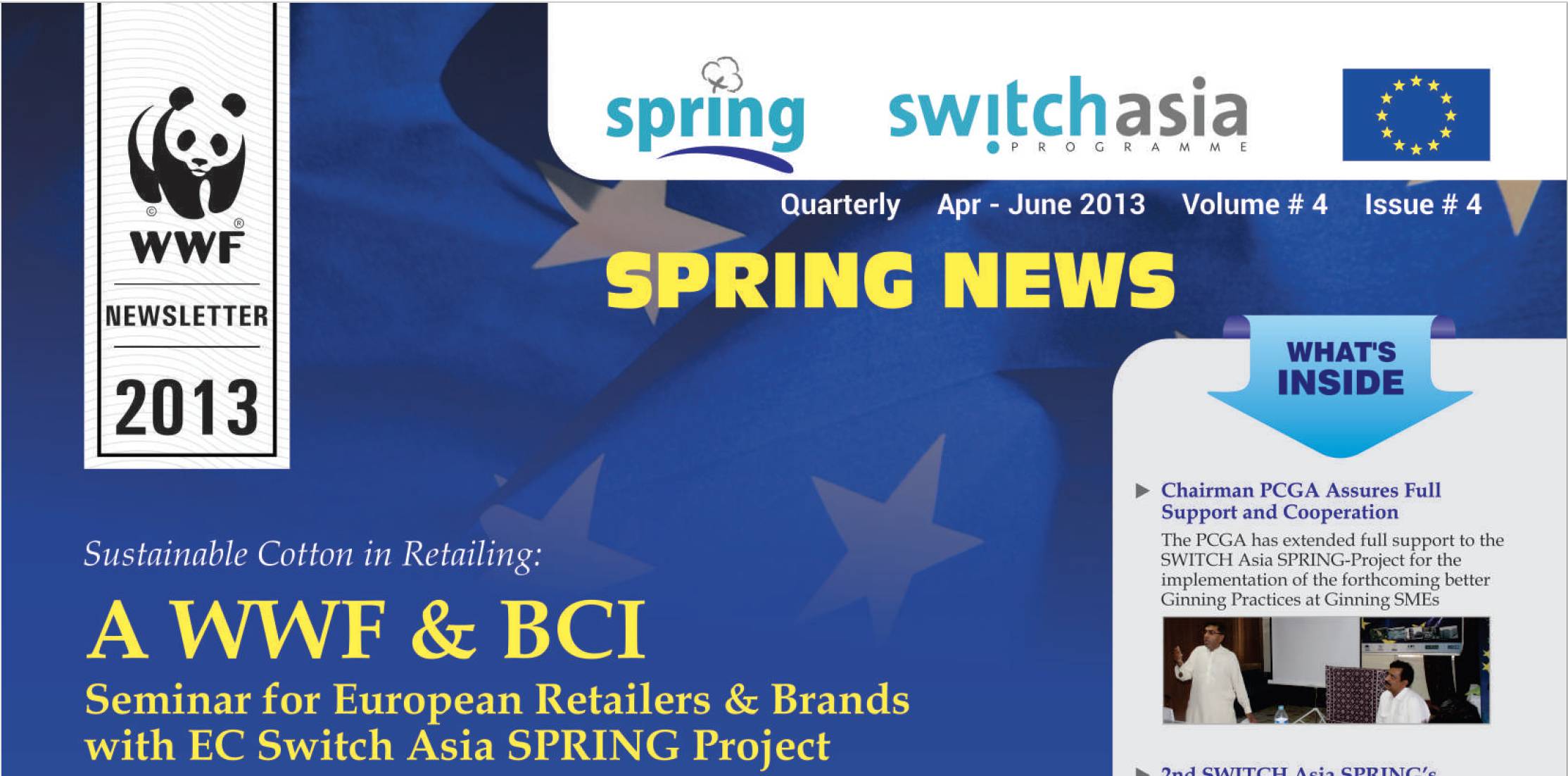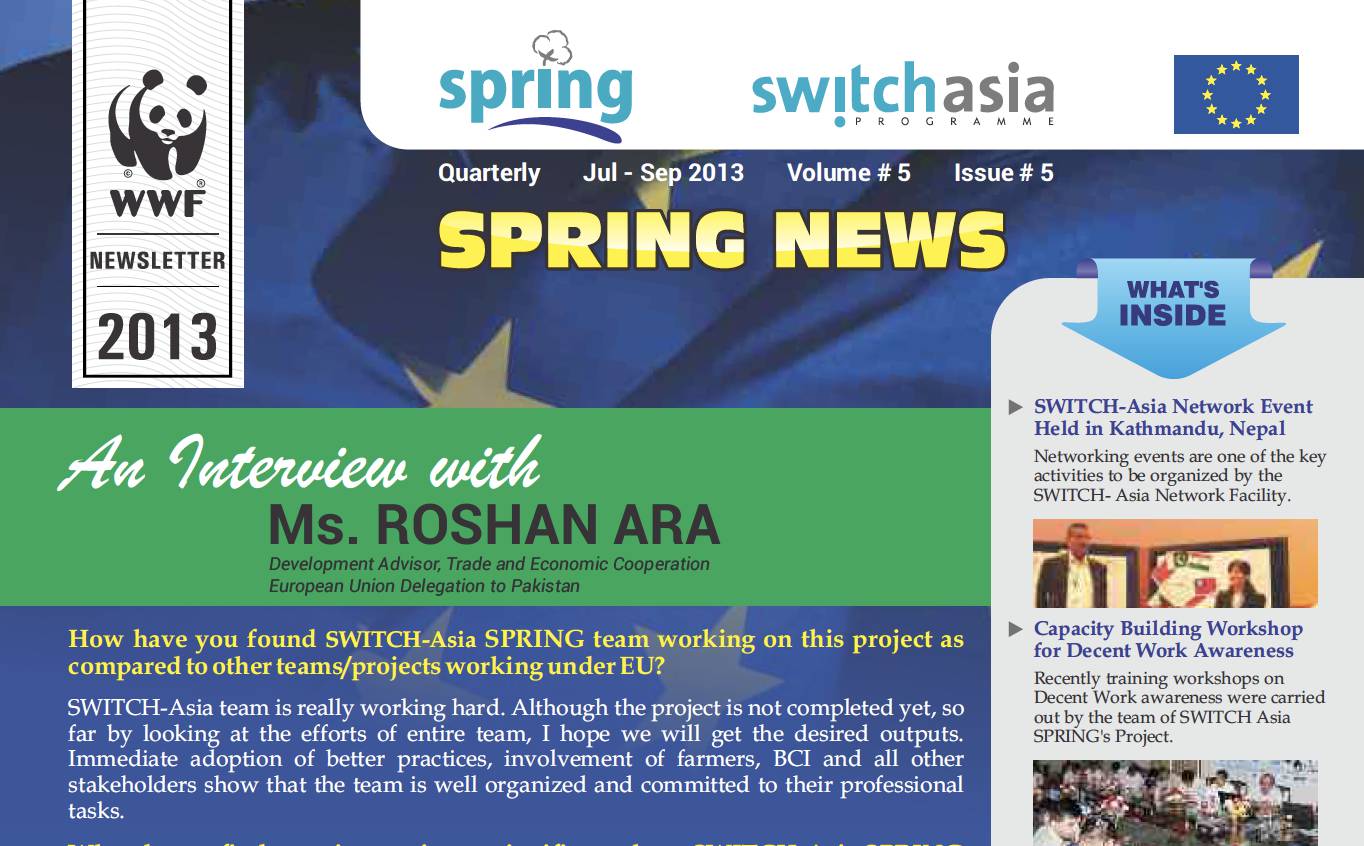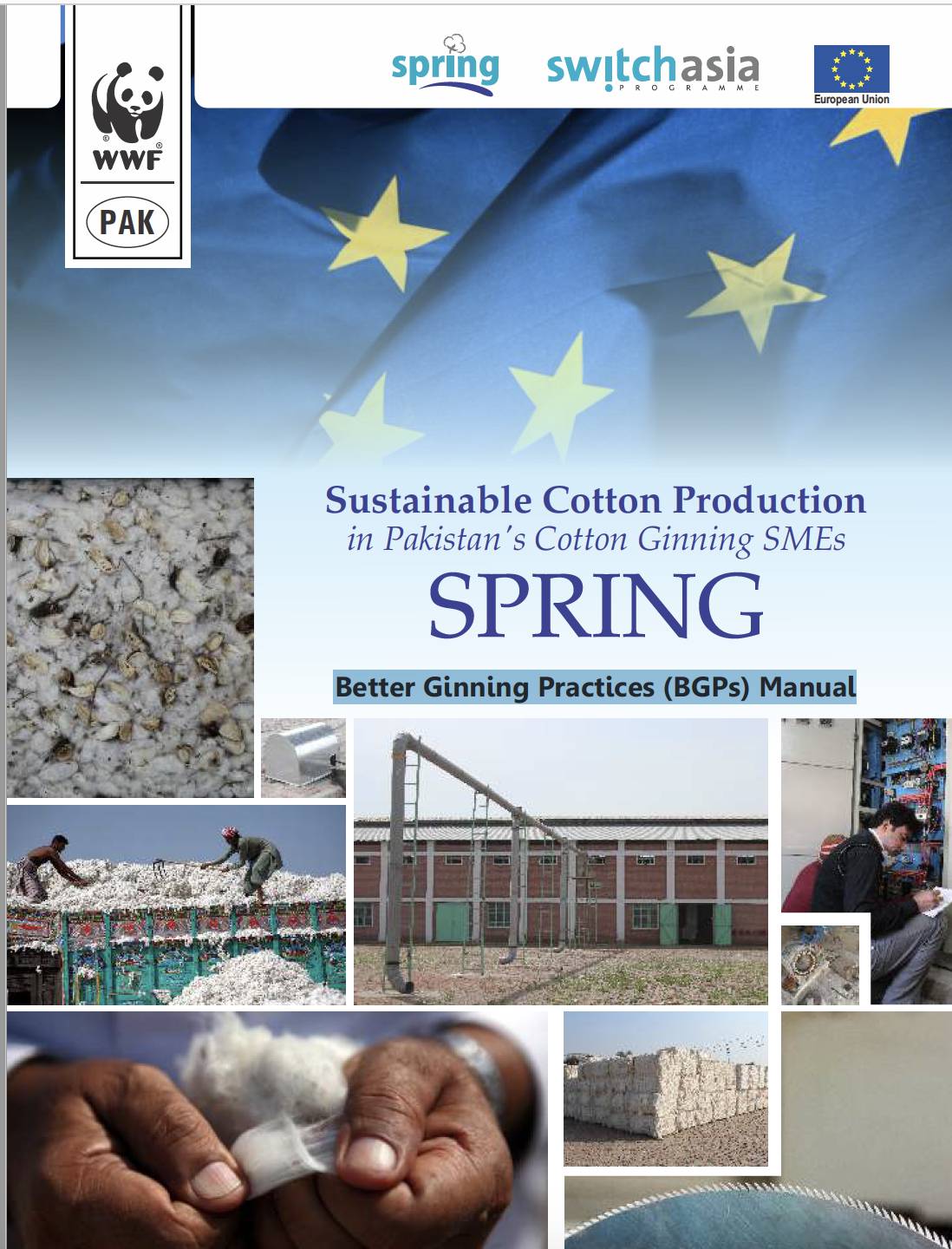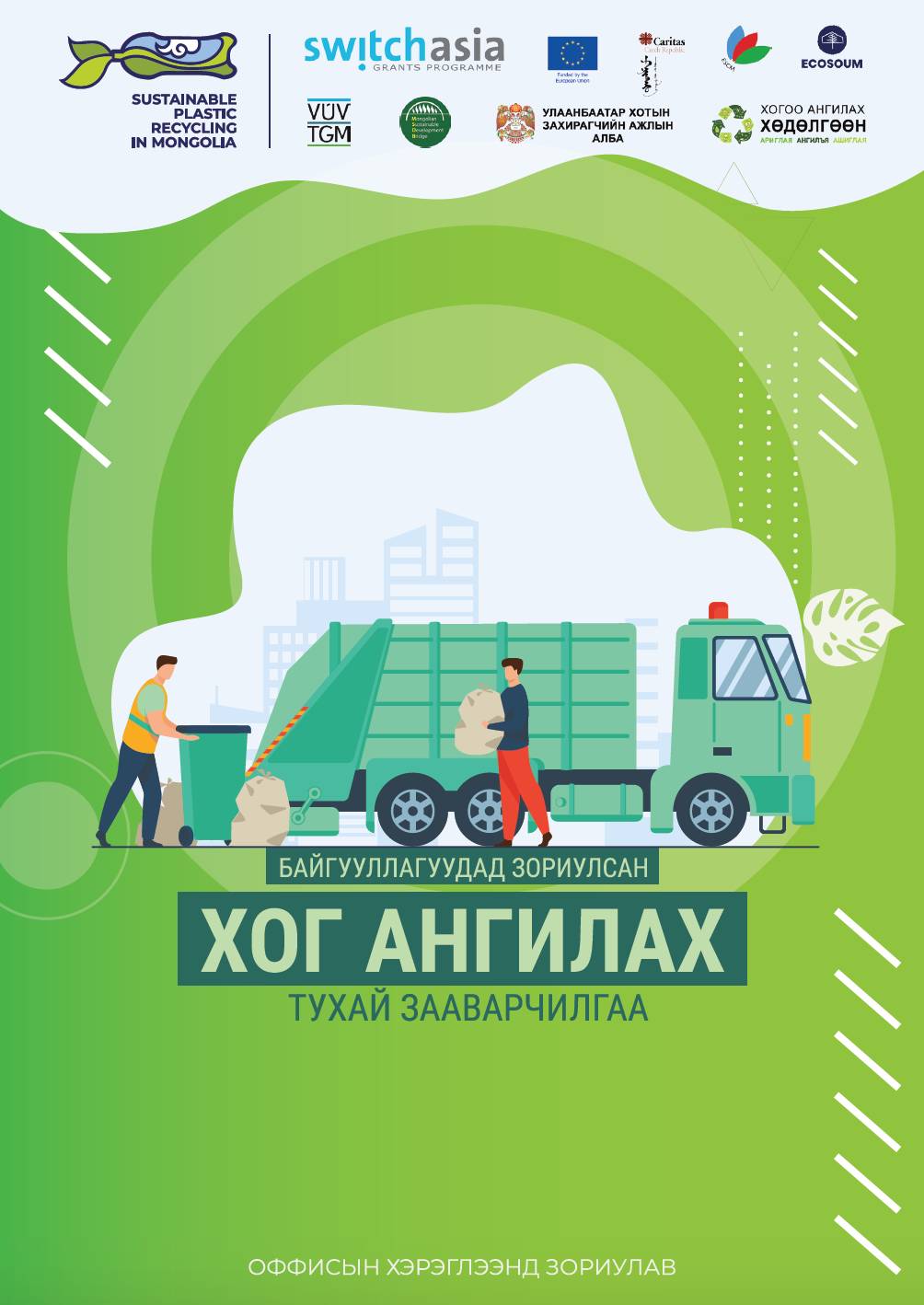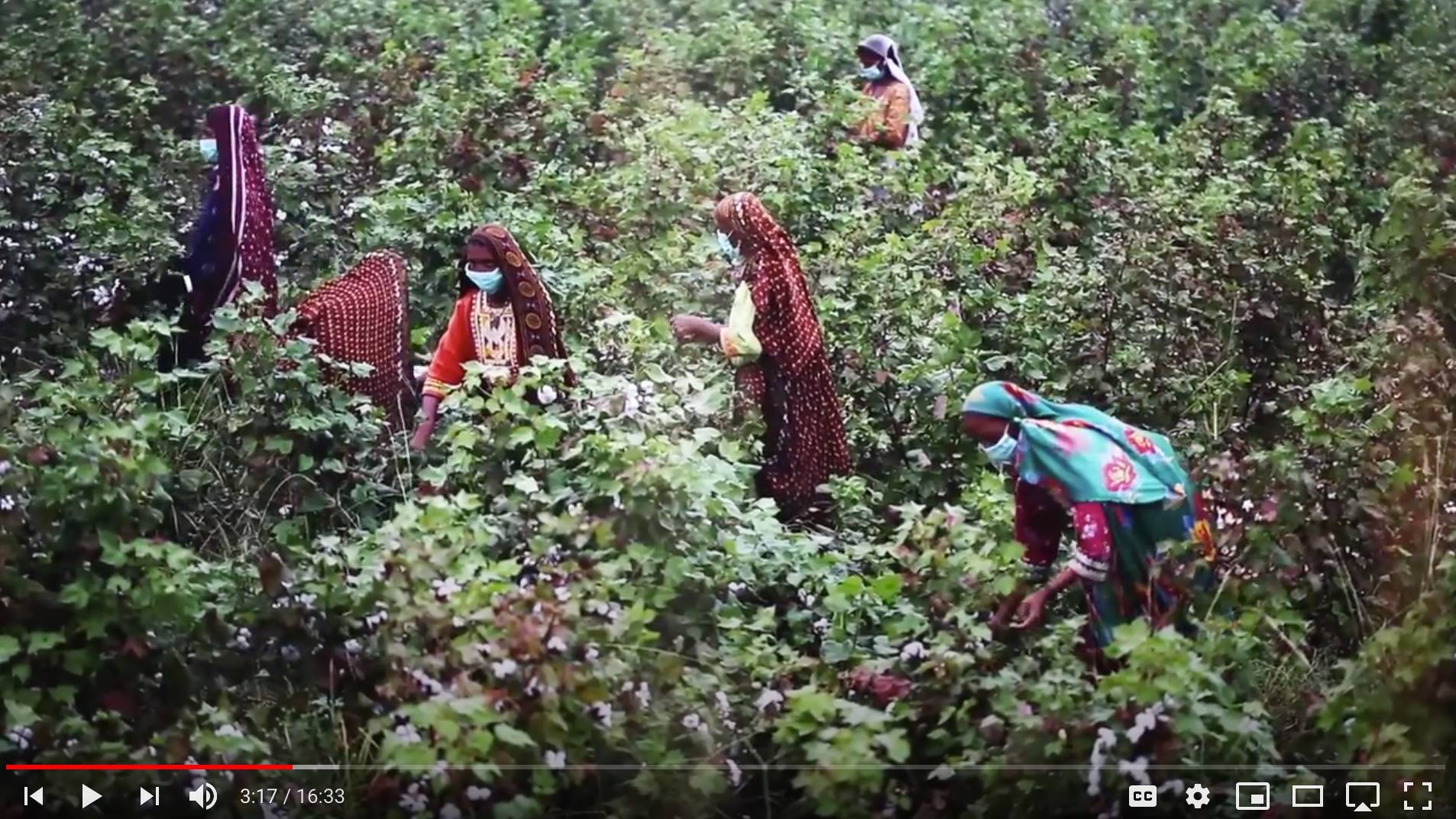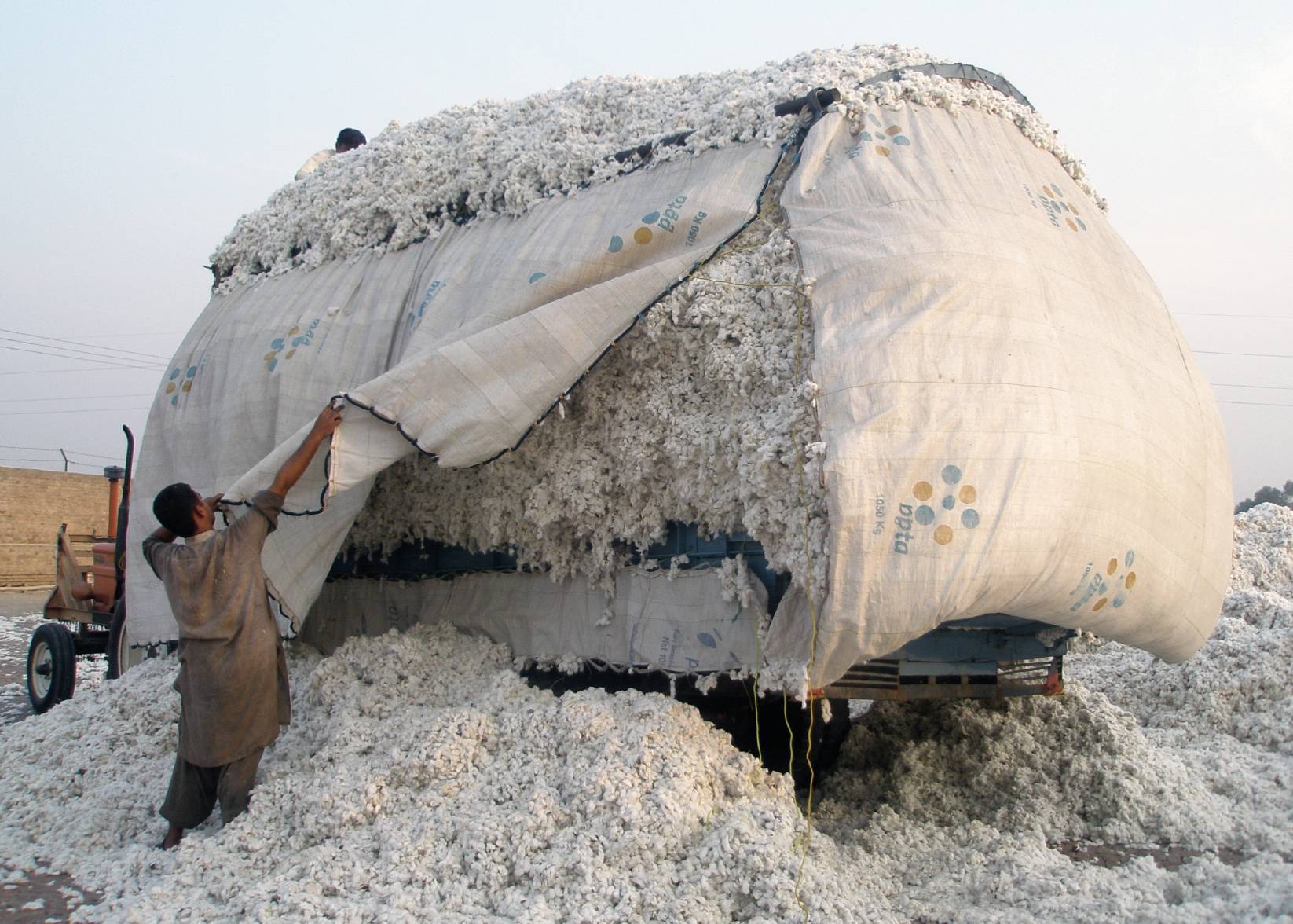
The Challenge
The cotton and textiles sector accounts for 40% of Pakistan’s total labour force and nearly 60% of exports. Cotton is a natural and breathable fibre; it is also renewable, recyclable and biodegradable. Consumers, brands and retailers are becoming increasingly conscious about issues such as chemical and water use, child labour, gender inequality, low wages and other risks linked to the cotton sourcing. Besides exploring choices for sourcing the cotton sustainably, responsible businesses are looking to improve cotton-sourcing procedures through more traceability, control and transparency in their cotton supply chain. The cotton ginning sector in Pakistan is characterised by direct environmental impacts resulting mainly from high-energy consumption and inefficient processes. Moreover, poor housekeeping and working conditions pose direct threats to health and safety of the workers.
The Objectives
The project aimed to have at least 500 cotton gin SMEs in Pakistan recognise the benefits of sustainable cotton production and consumption, and 40% of these SMEs commit to more sustainable production practices, in line with the agreed better ginning practice guidelines, and supported by the procurement practices of European retailers.
The Way Forward
- Improving the Supply of ‘Better Cotton’
- Developing Better Ginning Practice (BGP) Guideline
- Capacity Building
- Instilling Change in Retailers’ Purchasing Practices
- Conducting In-depth Dissemination
VIDEO
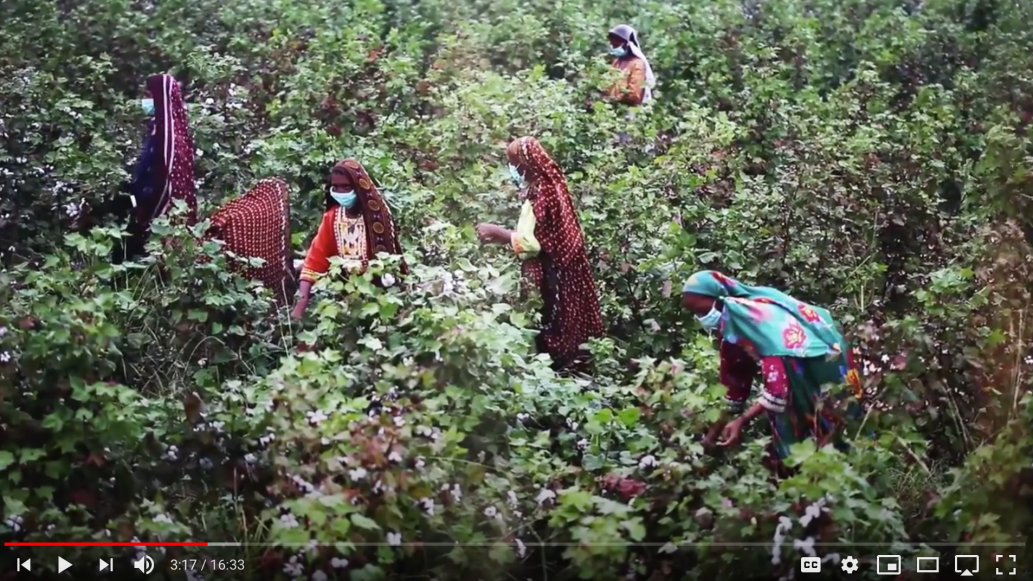
Duration:
01/2012 – 12/2015Total Budget:
EUR 1 979 286 (EU contribution: 80%)Contact Detail:
Mr. Asad Imran
Project Manager
WWF-Pakistan
191-D Board of Intermediate Road
Cheema Town, Bahawalpur, Pakistan
Email: [email protected]
Lead Partners

WWF-Pakistan
Partners


